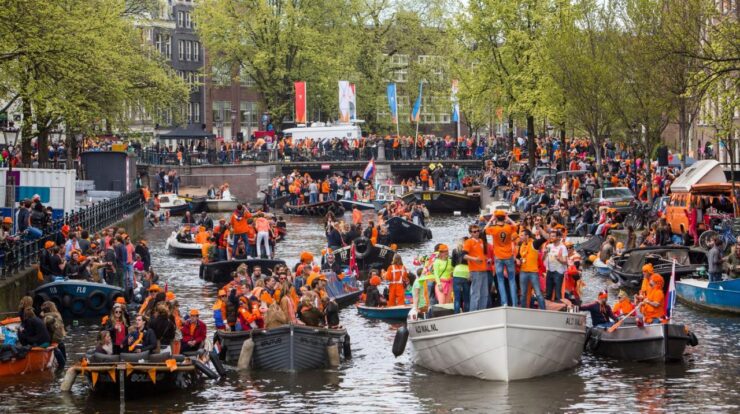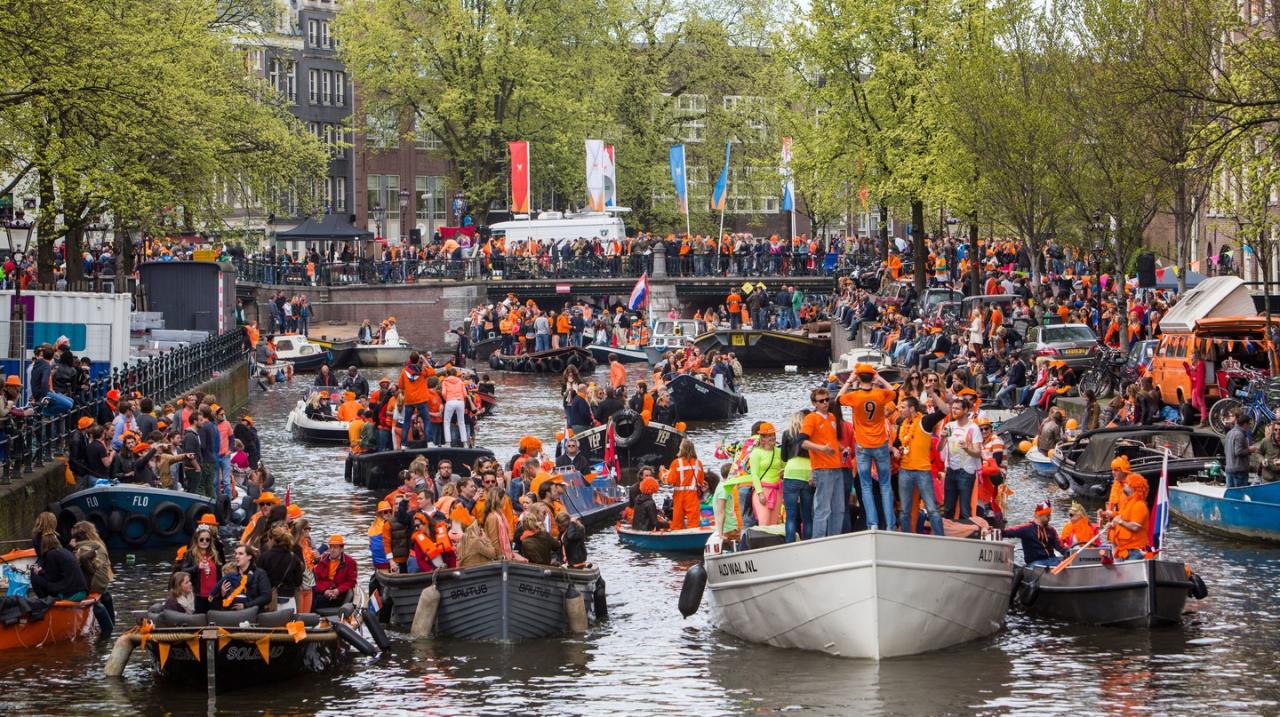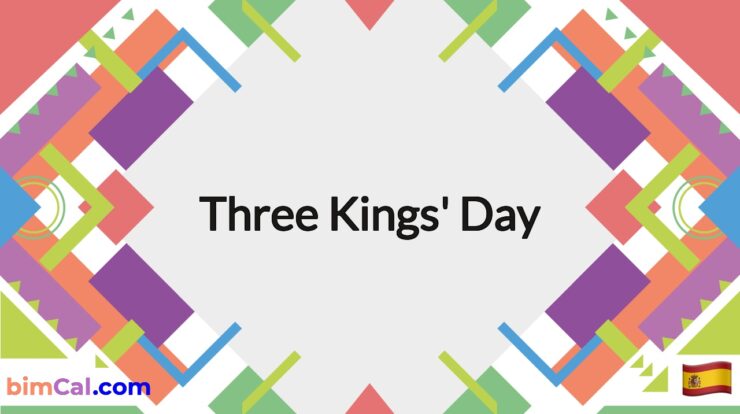
The Netherlands King’s Day, an annual celebration observed on April 27th, is a vibrant spectacle that encapsulates the rich culture, traditions, and national pride of the Dutch people. Marked by a kaleidoscope of orange-hued festivities, this day honors the reigning monarch and fosters a sense of unity and national identity.
King’s Day, formerly known as Queen’s Day, has its roots in the birthday of Queen Wilhelmina, who ascended to the throne in 1890. In 2013, upon the accession of King Willem-Alexander, the celebration was renamed to reflect the change in monarchy.
King’s Day Celebration: Netherlands King’s Day
King’s Day is a national holiday in the Netherlands, celebrated on April 27th. It marks the birthday of King Willem-Alexander and is a day of festivities and merriments.
The traditional festivities include flea markets, street parties, and concerts. People dress in orange, the national color, and gather in public spaces to enjoy the day. Orange is also reflected in the decorations and flags that adorn the streets.
Significance of Orange
The color orange has a long history in the Netherlands. It is associated with the House of Orange-Nassau, the ruling royal family of the Netherlands since the 16th century.
The color orange has become a symbol of national pride and unity. On King’s Day, people wear orange clothing, hats, and accessories to show their support for the monarchy and to celebrate their Dutch heritage.
Origins and Evolution of King’s Day
King’s Day was originally known as Queen’s Day, as it was celebrated on the birthday of Queen Wilhelmina.
In 2013, Queen Beatrix abdicated the throne to her son, Willem-Alexander. As a result, Queen’s Day was renamed King’s Day.
Economic Impact of King’s Day

Positive Economic Effects
- Increased tourism: King’s Day attracts large numbers of tourists, both domestic and international, which boosts the tourism industry.
- Increased retail sales: Many businesses offer discounts and promotions on King’s Day, leading to increased retail sales.
- Increased transportation usage: Public transportation and taxis are in high demand during King’s Day, benefiting transportation companies.
Negative Economic Effects, Netherlands king’s day
- Lost productivity: Many businesses close or operate with reduced staff on King’s Day, resulting in lost productivity.
- Traffic congestion: The large crowds and street parties can lead to traffic congestion, disrupting business operations and transportation.
- Public safety costs: The government incurs additional costs for public safety measures, such as police and emergency services, during King’s Day.
Cultural Significance of King’s Day
Dutch Values and Traditions
King’s Day is a reflection of Dutch values and traditions. It is a day for people to come together, celebrate their national identity, and show their support for the monarchy.
Fostering National Unity and Identity
King’s Day plays a significant role in fostering national unity and identity in the Netherlands. It is a day when people from all walks of life come together to celebrate their shared heritage and culture.
Historical Context of King’s Day
Queen Wilhelmina’s Birthday
King’s Day has its roots in the birthday of Queen Wilhelmina, who was born on August 31, 1880.
In 1948, Queen Wilhelmina’s birthday was declared a national holiday, and it became known as Queen’s Day.
Transition to King’s Day
In 2013, Queen Beatrix abdicated the throne to her son, Willem-Alexander. As a result, Queen’s Day was renamed King’s Day.
The first King’s Day was celebrated on April 27, 2014, the birthday of King Willem-Alexander.
Global Recognition and Impact of King’s Day
International Recognition
King’s Day is recognized and celebrated beyond the Netherlands. It is celebrated in Dutch communities around the world, as well as in other countries with strong ties to the Netherlands.
Efforts to Promote King’s Day
The Dutch government and tourism industry have made efforts to promote King’s Day as a global event.
These efforts include organizing official King’s Day celebrations in major cities around the world and promoting the holiday through social media and other channels.
Potential Benefits and Challenges
Expanding King’s Day’s global reach has potential benefits, such as increased tourism and cultural exchange.
However, there are also challenges, such as ensuring that the holiday remains authentic and meaningful while also appealing to a global audience.
Concluding Remarks
Beyond the Netherlands, King’s Day has gained international recognition and celebration. Efforts are underway to promote the event globally, showcasing the unique Dutch culture and fostering a sense of global community.
Quick FAQs
What is the significance of orange on King’s Day?
Orange is the national color of the Netherlands and is associated with the royal family. During King’s Day, the country is awash in orange decorations, clothing, and accessories, symbolizing unity and national pride.
What are some popular activities during King’s Day?
King’s Day is characterized by a variety of festivities, including street markets, flea markets, music performances, parades, and traditional games. Many people also take part in “vrijmarkt,” where they sell their used belongings on the streets.
What is the economic impact of King’s Day?
King’s Day has a significant positive impact on the Dutch economy, particularly in the retail, hospitality, and tourism sectors. The influx of visitors and increased consumer spending contribute to a boost in economic activity.
